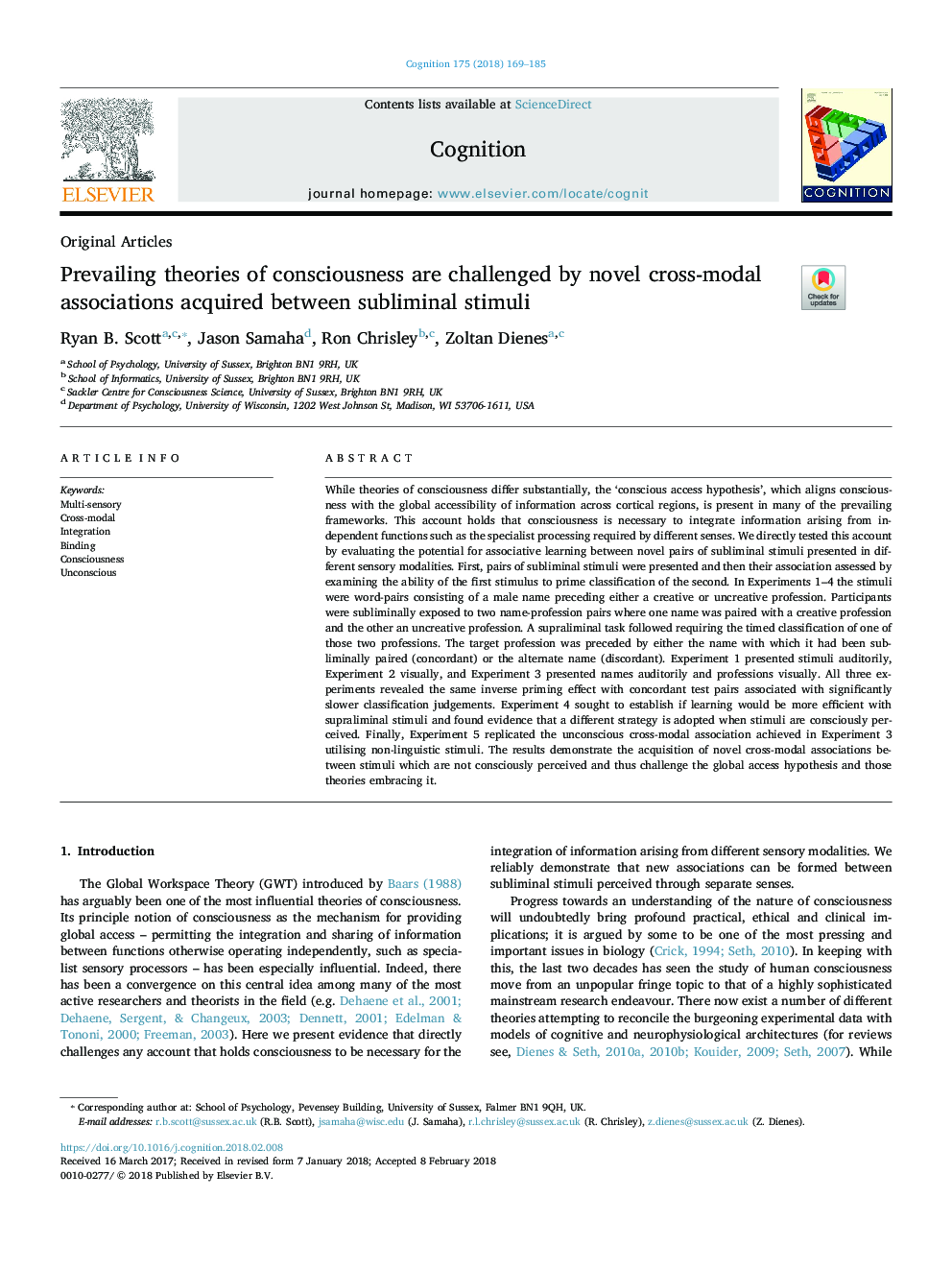| Article ID | Journal | Published Year | Pages | File Type |
|---|---|---|---|---|
| 7285377 | Cognition | 2018 | 17 Pages |
Abstract
While theories of consciousness differ substantially, the 'conscious access hypothesis', which aligns consciousness with the global accessibility of information across cortical regions, is present in many of the prevailing frameworks. This account holds that consciousness is necessary to integrate information arising from independent functions such as the specialist processing required by different senses. We directly tested this account by evaluating the potential for associative learning between novel pairs of subliminal stimuli presented in different sensory modalities. First, pairs of subliminal stimuli were presented and then their association assessed by examining the ability of the first stimulus to prime classification of the second. In Experiments 1-4 the stimuli were word-pairs consisting of a male name preceding either a creative or uncreative profession. Participants were subliminally exposed to two name-profession pairs where one name was paired with a creative profession and the other an uncreative profession. A supraliminal task followed requiring the timed classification of one of those two professions. The target profession was preceded by either the name with which it had been subliminally paired (concordant) or the alternate name (discordant). Experiment 1 presented stimuli auditorily, Experiment 2 visually, and Experiment 3 presented names auditorily and professions visually. All three experiments revealed the same inverse priming effect with concordant test pairs associated with significantly slower classification judgements. Experiment 4 sought to establish if learning would be more efficient with supraliminal stimuli and found evidence that a different strategy is adopted when stimuli are consciously perceived. Finally, Experiment 5 replicated the unconscious cross-modal association achieved in Experiment 3 utilising non-linguistic stimuli. The results demonstrate the acquisition of novel cross-modal associations between stimuli which are not consciously perceived and thus challenge the global access hypothesis and those theories embracing it.
Related Topics
Life Sciences
Neuroscience
Cognitive Neuroscience
Authors
Ryan B. Scott, Jason Samaha, Ron Chrisley, Zoltan Dienes,
